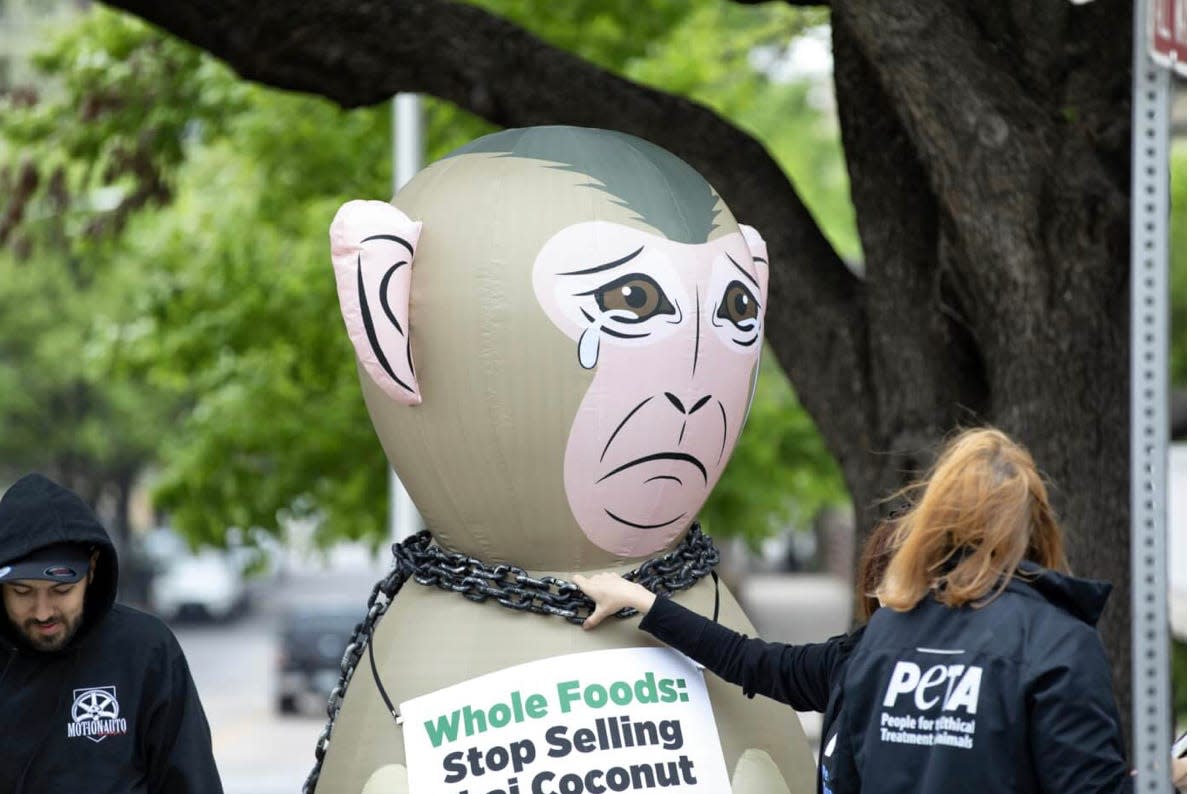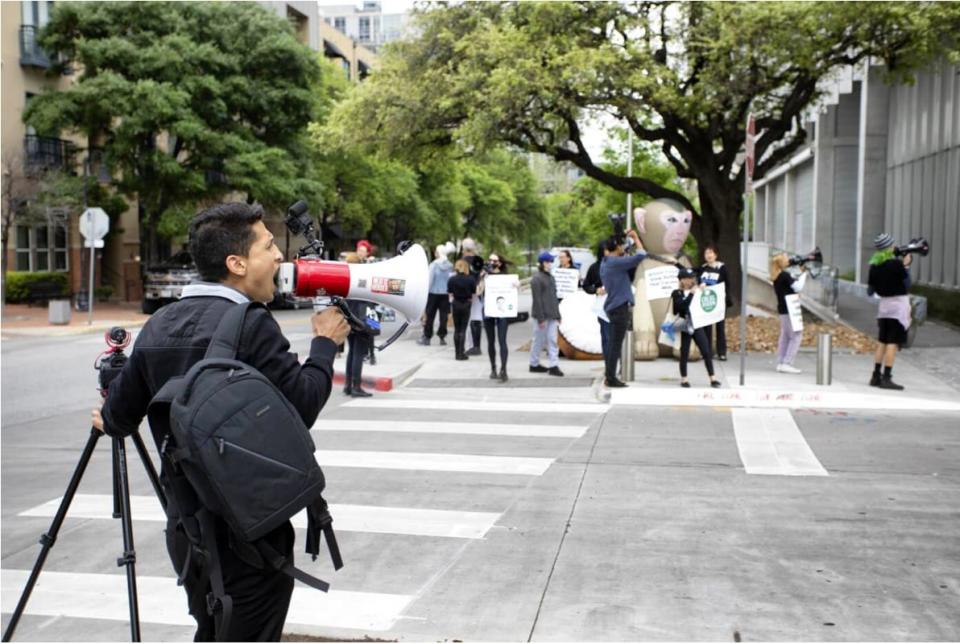Are monkeys used in production of coconut milk? Here's what Whole Foods and activists say

Animal welfare activists have been staging nationwide protests against the use of forced monkey laborers in the production of coconut milk, and the movement recently reached Austin. But are their concerns valid?
People for the Ethical Treatment of Animals has alleged that Whole Foods sells Thai coconut milk harvested by endangered pig-tailed macaques laborers, which the Austin-based store said is false. An anthropology professor told the American-Statesman that monkey labor accounts for only a fraction of coconut milk sold internationally.
Gathered outside the downtown Austin condo of Whole Foods Market CEO Jason Buechel on a Sunday in March, local volunteers joined a PETA-sanctioned protest, which questioned the origins of the coconut milk marketed by Whole Foods' in-house brand, 365.
Activists brought an inflatable monkey in chains and handed out pamphlets to passersby. They also stuck "wanted" posters with Buechel's picture in high-traffic areas around downtown Austin. They said they planned to stage more protests in Austin over the subject.
An undercover investigation by PETA Asia found that pig-tailed macaques are taken from their native jungle homes and are abusively trained and forced to pick coconuts from trees in Thailand while facing nearly constant abuse. When not working, the monkeys are kept chained without adequate sources of food or water, activists said.
Whole Foods Market said PETA has not produced any evidence to support its allegations that the Amazon-owned supermarket chain sells the coconut milk in question.
“We take this issue seriously and have previously confirmed our private label suppliers do not use animal labor in producing these products. We have reinvestigated this issue out of an abundance of caution and have again confirmed that coconuts from Thailand used in these products are harvested without the use of animal labor," Nathan Cimbala, a spokesperson for Whole Foods Market, said in an email to the American-Statesman.
Wendy Fernandez, a campaigner for PETA, said attempts to reach Whole Foods Market and its CEO have been unsuccessful. Whole Foods said in a statement, however, that it had responded to PETA's claims and told the organization its coconut milk does not come from Chaokoh, the Thai supplier that is most frequently associated with monkey laborers and that was identified in PETA's undercover footage.
"We have tried everything," Fernandez said.
She traveled to Austin from Florida to stage the protest in hopes of finally attracting Buechel's or Whole Foods' attention. She said other supermarket brands are also complicit in the animal abuse, and that Whole Foods and competitors have the option to buy coconut milk from suppliers in Sri Lanka, the Philippines, Mexico, the Dominican Republic or Vietnam but instead continue to source it from Thailand.
Food industry giants such as HelloFresh, Purple Carrot and Performance Food Group stopped obtaining coconut milk from Thailand after the exposé, a press release from PETA said.
A professor at a British university who has conducted extensive anthropological research on primates said the coconut milk Whole Foods sells might not even be from the region that enslaves monkeys.
Vincent Nijman, an anthropology professor at Oxford-Brookes University, said evidence of monkeys harvesting coconuts has been found in a small area of southernmost Thailand and northernmost Malaysia, and to a lesser degree in Indonesia. Most coconuts come from Thailand's central region, which produced about 1 million pounds of coconuts in 2022.
"While I cannot confirm anything about the specifics of where and how Whole Foods source their coconut milk, it is true that only a small proportion of the coconuts that end up in international trade have been harvested with the help of macaques," Nijman said in an email.
"So it is well possible that none of the coconut milk that is exported to the US comes from coconut-picking macaques."

This article originally appeared on Austin American-Statesman: Whole Foods says it's not selling coconut milk made with monkey labor

